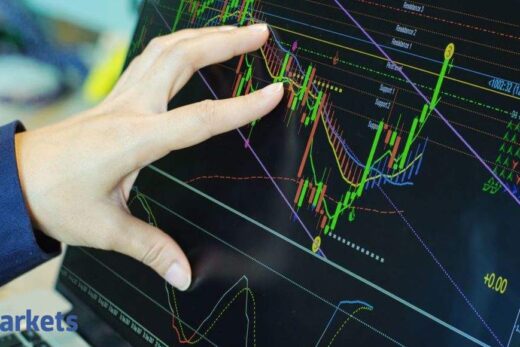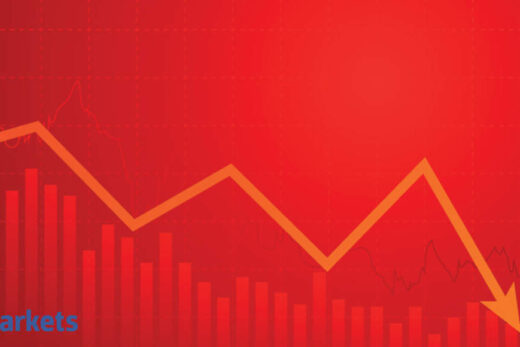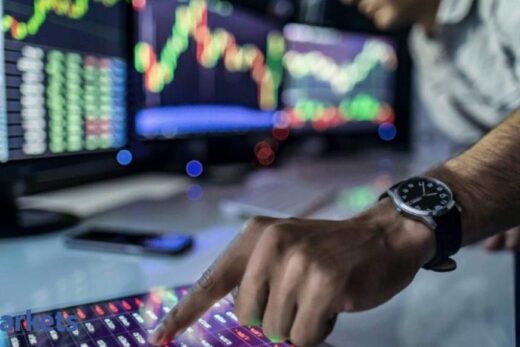China, Hong Kong and Taiwan’s economies were among the first to suffer from the virus pandemic. They were also home to some of the most dramatic events in global financial markets this year.
Take China’s equity market, whose value topped $10 trillion for the first time since the 2015 crash and where a liquor maker became the country’s most valuable stock. The yuan tested a record low offshore before commencing a rally that some say could take the currency to levels not seen since 1993.
In Hong Kong, colonial stalwart HSBC Holdings Plc fell to its lowest price since 1995 before becoming one of the city’s best trades. Record foreign inflows into Taiwan’s technology shares were so intense that the central bank had to intervene almost daily to rein in its strongest currency in more than two decades.
Here are some of the year’s biggest financial-market events in China, Hong Kong and Taiwan, a region at the forefront of the global recovery.
Comeback currency
Concern over the impact of Covid-19 on China’s economy triggered a slump in the yuan from mid-January. The currency tested its all-time low in offshore trading just four months later. But in the half-year since, it has surged to near the 6.5 mark, with Citigroup Inc. chief China economist Liu Li-gang predicting it could rally past 6 next year –- a level it hasn’t breached since 1993. Capital inflows into stocks and bonds are also boosting the yuan, posing a challenge to China’s central bank, which doesn’t want a stronger currency to harm an export-driven recovery.
 Bloomberg
BloombergAnt squashed
Days before Ant Group Co. was due for the biggest stock market debut ever seen, Chinese regulators abruptly halted the $35 billion initial public offering. Many observers concluded that the move was aimed at humbling both the Alibaba Group Holding Ltd. behemoth and its founder, billionaire Jack Ma, who at a Shanghai conference in October criticized China’s state-owned banks. The immediate reaction in the financial market reduced Ma’s fortune by almost $3 billion. Beijing last month also issued rules to root out monopolies in the internet sector and began scrutinizing investments in new energy vehicles.
Bust to boom
Resuming trade after an extended Lunar New Year break as the coronavirus outbreak worsened, Chinese equities were hit by a brutal wave of selling in February. More than 3,000 stocks went limit down in their worst day since the 2015 bubble burst. At that point it would have taken a strong stomach to predict that only five months later, China’s recovery in the face of the virus would propel a frenzy that would add $1 trillion to the market’s value in an 8-day period. That rally set the stage for the stock market to finish out the year stronger than it started.
 Bloomberg
BloombergAnt squashed
Days before Ant Group Co. was due for the biggest stock market debut ever seen, Chinese regulators abruptly halted the $35 billion initial public offering. Many observers concluded that the move was aimed at humbling both the Alibaba Group Holding Ltd. behemoth and its founder, billionaire Jack Ma, who at a Shanghai conference in October criticized China’s state-owned banks. The immediate reaction in the financial market reduced Ma’s fortune by almost $3 billion. Beijing last month also issued rules to root out monopolies in the internet sector and began scrutinizing investments in new energy vehicles.
Bust to boom
Resuming trade after an extended Lunar New Year break as the coronavirus outbreak worsened, Chinese equities were hit by a brutal wave of selling in February. More than 3,000 stocks went limit down in their worst day since the 2015 bubble burst. At that point it would have taken a strong stomach to predict that only five months later, China’s recovery in the face of the virus would propel a frenzy that would add $1 trillion to the market’s value in an 8-day period. That rally set the stage for the stock market to finish out the year stronger than it started.
Taiwan tensions?
Concerns about a possible Chinese military invasion were heightened, but you wouldn’t know it from looking at Taiwan’s markets. Chipmaker Taiwan Semiconductor Manufacturing Co. briefly entered the world’s top 10 companies by market value and its shares are up more than 50 per cent this year. The domestic benchmark stock index has been hitting record highs since July, surpassing the 14,000-point level for the first time in early December. The Taiwan dollar has recently reached its strongest level against the U.S. dollar since 1997, with the central bank apparently shifting from its previous “smoothing” strategy to a managed appreciation.
Shot: HSBC. Chaser: Moutai.
One of the most whiplash-inducing rebounds of the year was HSBC, which ran afoul of UK regulators, core investors and Chinese officials and saw its Hong Kong shares lose more than 50 per cent of their value between February and late September. It promptly bounced back as much as 55 per cent on better-than-expected third quarter results and a plan to return to dividend payouts, making it one of Hong Kong’s best-performers in the fourth quarter. And then a moment befitting 2020: baijiu distiller Kweichow Moutai Co Ltd. dethroned Industrial & Commercial Bank of China Ltd. as the biggest mainland stock by market value.



